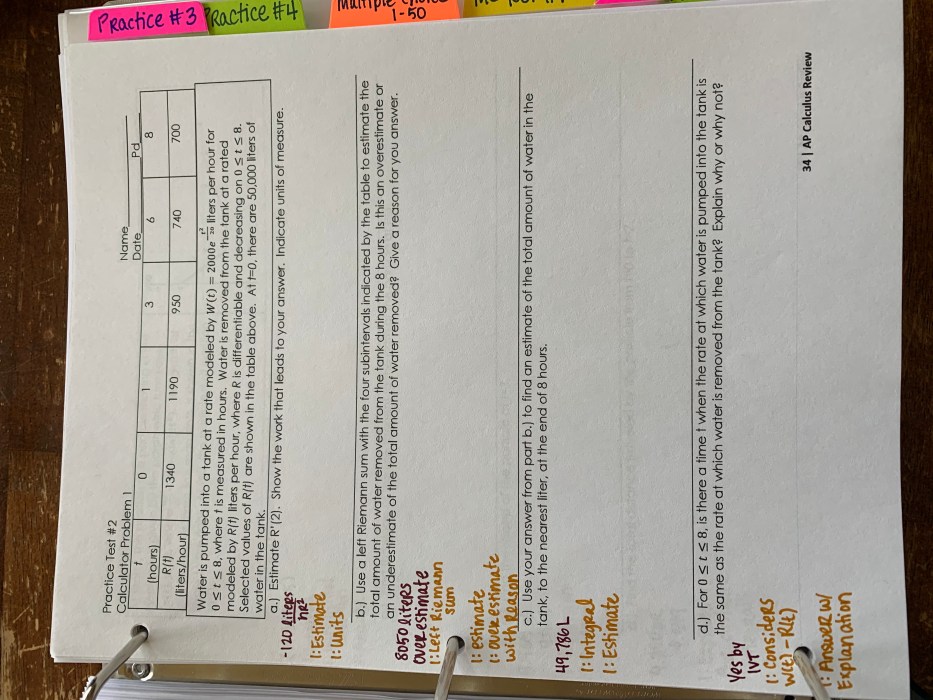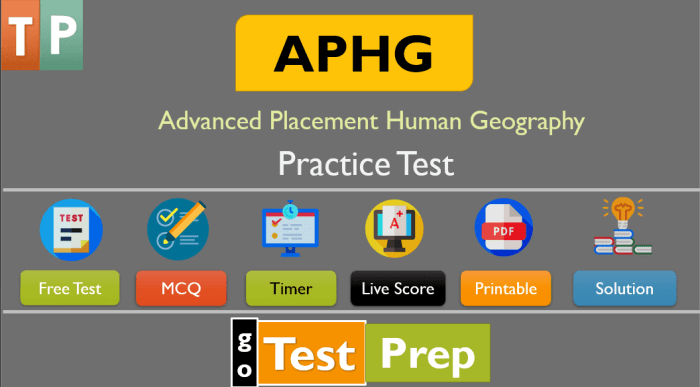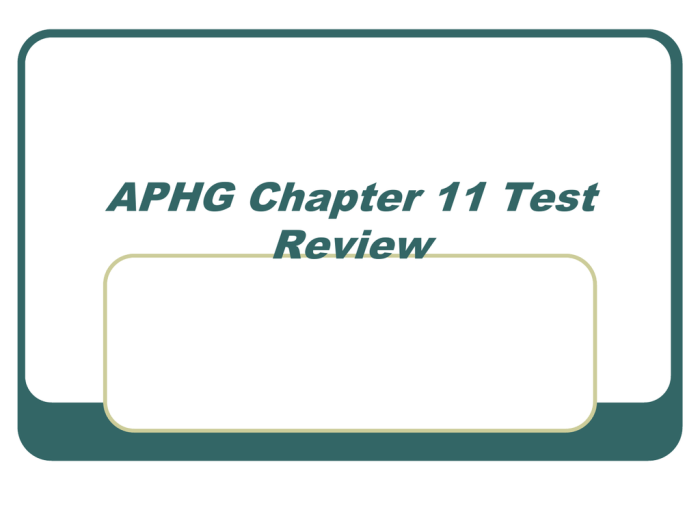The Unit 1 APHG Practice Test is an invaluable tool for students preparing for the AP Human Geography exam. It provides a comprehensive overview of the key concepts and themes tested on the exam, allowing students to assess their understanding and identify areas where they need additional support.
By utilizing this practice test, students can gain confidence and enhance their chances of success on the actual exam.
The Unit 1 APHG Practice Test covers a wide range of topics, including the nature of geography, the spatial perspective, and the tools and technologies of geography. It also delves into the major themes of human geography, such as population, culture, and the environment.
Through a combination of multiple-choice, short-answer, and essay questions, the practice test challenges students to demonstrate their knowledge and understanding of these essential concepts.
Topic Overview
The Unit 1 APHG Practice Test serves as a valuable assessment tool for students preparing for the Advanced Placement Human Geography exam. It offers a comprehensive evaluation of the foundational concepts covered in Unit 1 of the APHG curriculum.The test encompasses a range of topics, including:
- Introduction to human geography
- Geography’s relationship with other disciplines
- Spatial patterns and processes
- The nature of culture
- Cultural diversity and change
By completing the Unit 1 APHG Practice Test, students can gauge their understanding of these essential concepts and identify areas where they may need additional study. This feedback allows them to focus their efforts effectively and maximize their preparation for the actual exam.
Test Structure
The Unit 1 APHG Practice Test is designed to assess your understanding of the key concepts covered in Unit 1 of the AP Human Geography course.
The test consists of three types of questions:
- Multiple Choice:These questions present you with a question and several possible answers. You must choose the best answer from the options provided.
- Short Answer:These questions require you to write a brief answer to a specific question. Your answer should be concise and to the point.
- Essay:This question requires you to write a longer, more detailed answer to a specific question. Your essay should be well-organized and supported by evidence from the course material.
Key Concepts
The Unit 1 APHG Practice Test assesses your understanding of the fundamental concepts and themes that underpin the study of human geography. These concepts provide the framework for understanding the interactions between humans and their environment and are crucial for success in the APHG course.
If you’re prepping for the Unit 1 APHG practice test, you’ll want to check out the OSHA 30 Module 2 answers . These answers can help you brush up on key concepts and ensure you’re ready for the exam. Once you’ve reviewed the OSHA 30 answers, you can return to your Unit 1 APHG practice test with renewed confidence.
The key concepts tested in the practice test include:
- Spatial relationships:The ways in which people and places are connected and organized.
- Place and region:The characteristics that define a particular location or group of locations.
- Human-environment interaction:The ways in which humans interact with and modify their environment.
- Movement:The movement of people, goods, and ideas across space.
- Culture:The beliefs, values, and practices that shape human behavior.
These concepts are essential for understanding the complexities of human geography and provide the foundation for further study in the subject.
Test-Taking Strategies: Unit 1 Aphg Practice Test

Adequately preparing for and taking the Unit 1 APHG Practice Test can significantly enhance your performance. By implementing effective study methods, managing time efficiently, and utilizing other helpful techniques, you can maximize your understanding of the material and achieve a successful outcome.
Firstly, it is crucial to thoroughly review the course materials, including textbooks, notes, and any additional resources provided by your instructor. Active recall techniques, such as flashcards or self-testing, can help solidify your understanding of the concepts.
Effective Study Methods
- Spaced Repetition:Reviewing material at increasing intervals helps strengthen memory retention.
- Active Recall:Attempting to recall information without looking at notes enhances comprehension.
- Elaboration:Connecting new information to existing knowledge deepens understanding.
Time management is another critical aspect of test preparation. Allocate sufficient time for studying and practice, breaking down large tasks into smaller, manageable chunks.
Time Management Techniques
- Pomodoro Technique:Alternating focused study sessions with short breaks can improve concentration.
- Prioritization:Focus on understanding key concepts and allocating more time to challenging topics.
- Time Blocking:Schedule specific time slots for studying, reviewing, and practicing.
During the test, it is essential to read instructions carefully, allocate time wisely, and manage stress effectively. Employing relaxation techniques, such as deep breathing or visualization, can help calm nerves and improve focus.
Sample Questions

The following table presents sample questions from the Unit 1 APHG Practice Test. These questions are designed to assess your understanding of the key concepts covered in the unit.
The table includes questions of different types, including multiple choice, short answer, and data analysis.
Multiple Choice
- Which of the following is NOT a factor that influences the distribution of population?
- Which of the following is the most important factor in determining the location of a settlement?
- Which of the following is a characteristic of a developed country?
Short Answer
- Explain the difference between absolute and relative location.
- Describe the three main types of economic activities.
- Discuss the advantages and disadvantages of using population pyramids to study population change.
Data Analysis, Unit 1 aphg practice test
- The following table shows the population of the world’s ten largest countries. Analyze the data and discuss the trends in population growth.
- The following map shows the distribution of agricultural land use in the United States. Analyze the map and discuss the factors that influence the location of agricultural land.
Additional Resources

In addition to the study materials provided, here are some additional resources that you can use to prepare for the Unit 1 APHG Practice Test:
Study Materials
- AP Human Geography Textbook
- AP Human Geography Review Book
- Online Study Guides
Online Practice Tests
- College Board AP Human Geography Practice Test
- Khan Academy AP Human Geography Practice Test
- Princeton Review AP Human Geography Practice Test
Helpful Websites
- AP Human Geography Course Description
- AP Human Geography Teacher Resources
- AP Human Geography Student Resources
Popular Questions
What is the purpose of the Unit 1 APHG Practice Test?
The purpose of the Unit 1 APHG Practice Test is to provide students with an opportunity to assess their understanding of the key concepts and themes tested on the AP Human Geography exam. It helps students to identify areas where they need additional support and to improve their test-taking skills.
What topics are covered on the Unit 1 APHG Practice Test?
The Unit 1 APHG Practice Test covers a wide range of topics, including the nature of geography, the spatial perspective, and the tools and technologies of geography. It also delves into the major themes of human geography, such as population, culture, and the environment.
What types of questions are included on the Unit 1 APHG Practice Test?
The Unit 1 APHG Practice Test includes a combination of multiple-choice, short-answer, and essay questions. These questions are designed to challenge students to demonstrate their knowledge and understanding of the key concepts and themes tested on the exam.